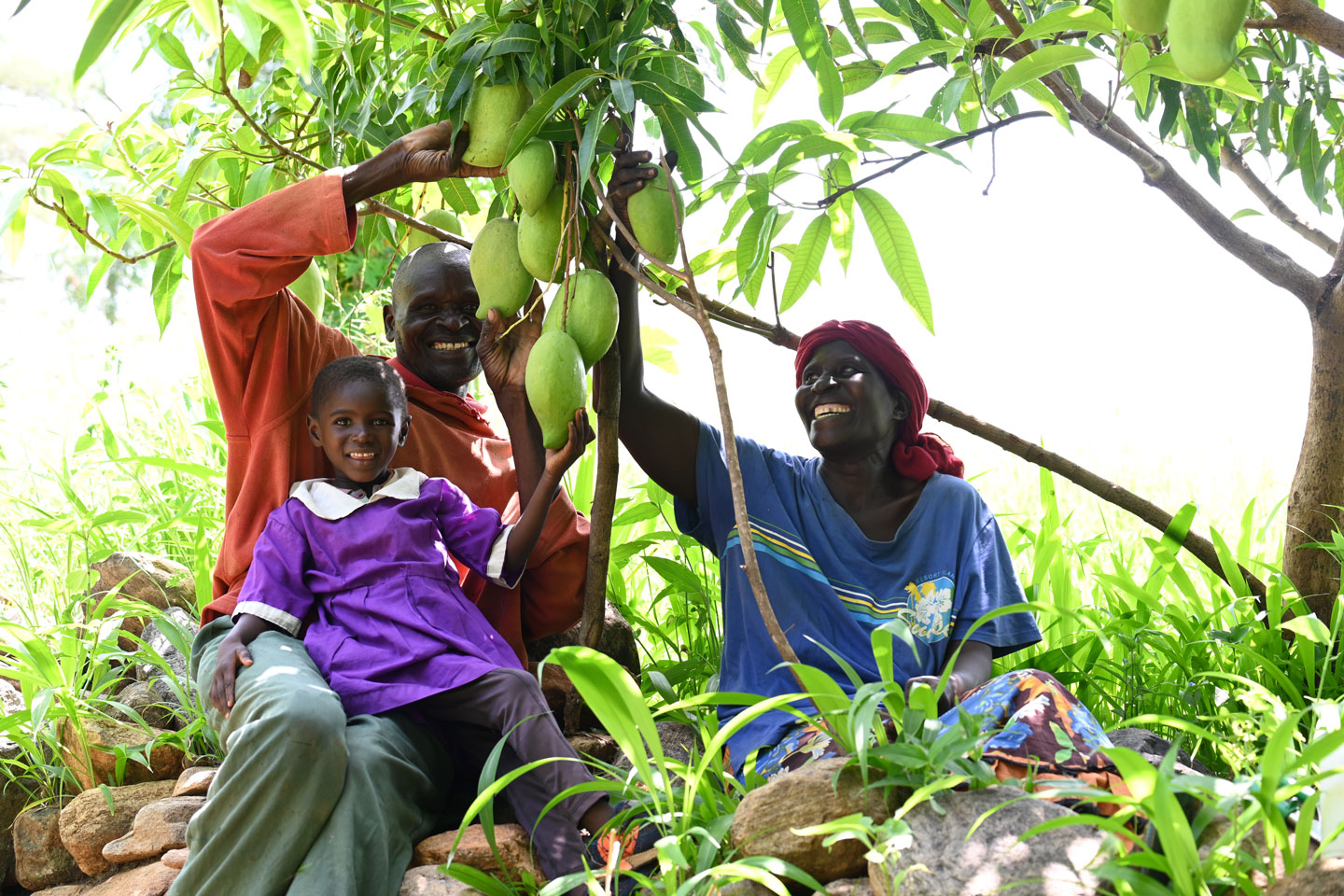How world Vision tackles food insecurity and hunger through farmer managed natural regeneration. World Vision Australia reflects on the transformative impact of Farmer Managed Natural Regeneration (FMNR) in combating hunger, food insecurity, and malnutrition for some of the world’s most vulnerable communities, and envisions a more sustainable future for all children and their families.


Regrowing forests hidden underground. It sounds simple, but doing this has huge impacts on both sustainable food production and climate change for some of the toughest environments and most vulnerable communities around the world.
Regrowing forests from cut down trees by tapping into the power of their intact root systems, buried underground, is a technique called Farmer Managed Natural Regeneration (FMNR).
FMNR involves systematic regeneration, management and regrowth of trees and shrubs from felled tree stumps, roots and seedlings, thereby regreening degraded productive land, which helps communities sustain and support themselves and respond to the challenges of climate change.
World Vision is committed to leading a global movement to regreen a billion hectares of degraded land around the world in the next decade.
What will this actually do? Forests are natural carbon sinks: they pull carbon out of the atmosphere, almost like nature’s vacuum. We can help solve the climate problem by regrowing trees and regreening land with FMNR.
But the benefits go beyond that: FMNR helps communities sustain and support sustainable food systems, which means more food, for more people in some of the toughest climates and environments to live around the world.
This low-cost technique, which can be picked up by farmers easily and quickly, is transforming land which was once degraded into sustainable and productive land.
So, on the topic of sustainable food, what are the key benefits for food and nutrition with FMNR?
Getting More Food for Families
In some parts of the world, like Kenya and Niger, many families don’t have enough food all year. But FMNR is changing that. In Kenya, more families now have enough food year-round due to FMNR. In Niger, the annual "hungry period" has been reduced by up to four months, meaning families have more food and worry less about hunger.
Improving Nutrition through Food Diversity
Eating different kinds of foods like fruits, vegetables, and grains is essential. FMNR helps families in places like Ghana grow and eat more types of food. FMNR families consume foods from 10 out of 12 food groups, compared to only 4 for non-FMNR households. This variety helps children grow healthy and strong.
Growing More Crops and Raising More Animals
FMNR helps farmers grow more crops and better care for their animals. In Somaliland, farmers using FMNR grow more vegetables and grains and feed their livestock better than those who don’t. They get double the cabbages and tomatoes and more cereals and cowpeas. In Rwanda, farmers have healthier animals, leading to more milk and meat to eat or sell.
Making the Soil Healthy
Healthy soil is crucial for plant growth. FMNR makes the soil richer and better for growing crops. In Ethiopia, it has been shown that 77% of the households doing FMNR have healthier soil, leading to more productive land and a sustainable future.
Earning More Money and Strengthening Economies
FMNR not only helps families grow more food but also helps them earn more money. In countries like South Sudan and Rwanda, households implementing FMNR have significantly higher incomes because they can grow and sell more food and tree products like medicinal plants. With more money, families can buy better food, pay for school, and get medicine.
Empowering and Building Stronger Communities
FMNR helps families better support themselves and their communities, making them less likely to run out of food and more resilient to climate and economic changes. FMNR empowers communities to be self-reliant and resilient in the face of challenges.
A VISION FOR THE FUTURE
World Vision’s FMNR is more than just an agricultural technique; it’s a movement to fight hunger and food insecurity worldwide, and to help the planet fight back against climate change. By supporting programs like FMNR, we can ensure a future where every child has nutritious food, every family enjoys food security, and every community thrives sustainably.
For more information about World Vision Australia's initiatives and how you can support FMNR, visit World Vision Australia








